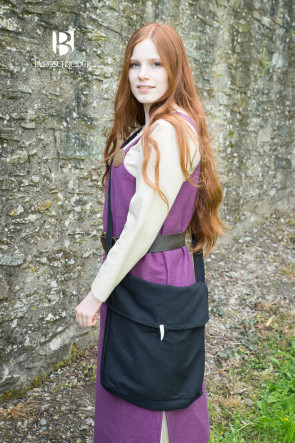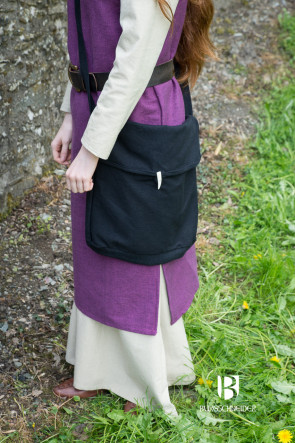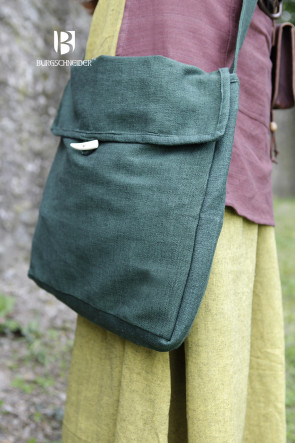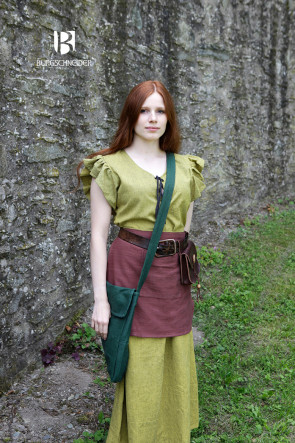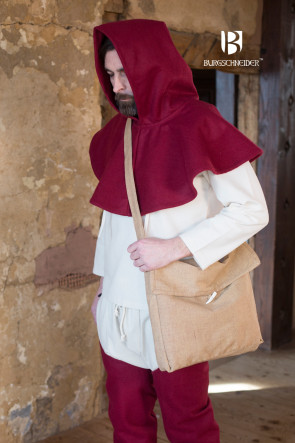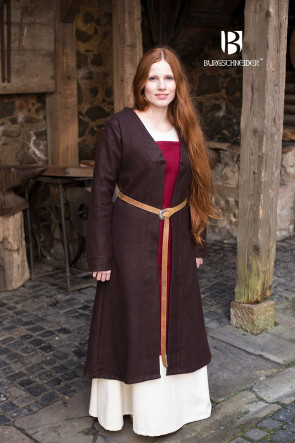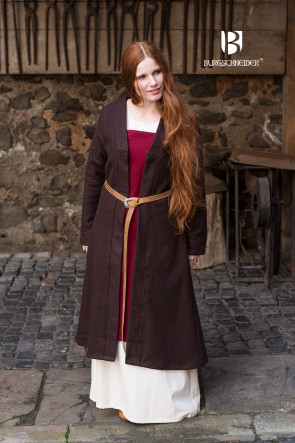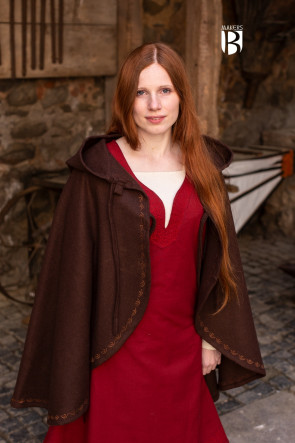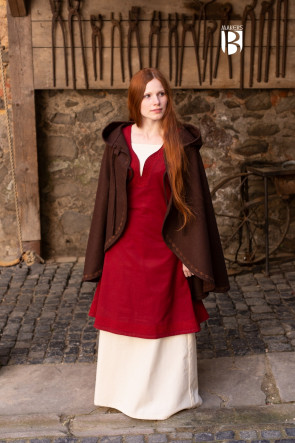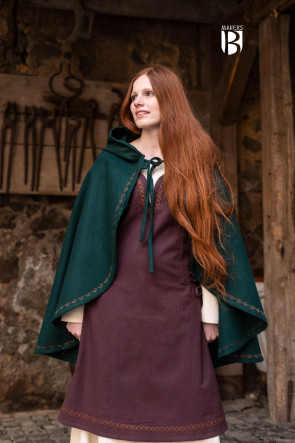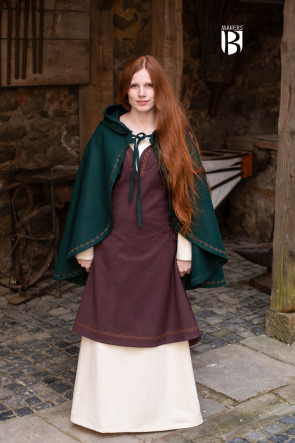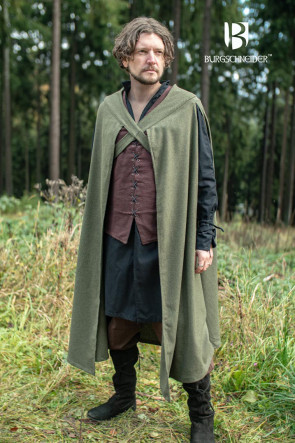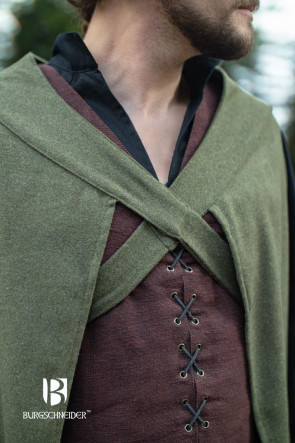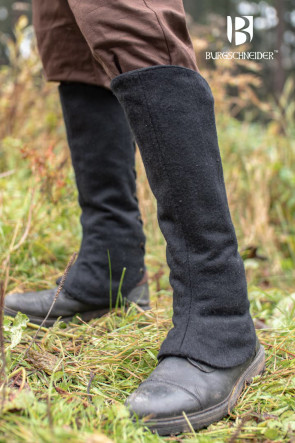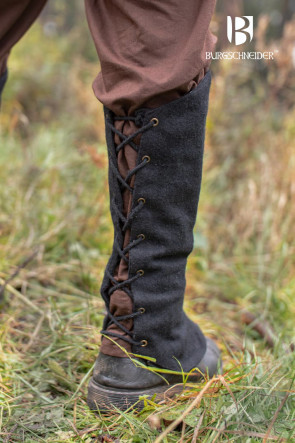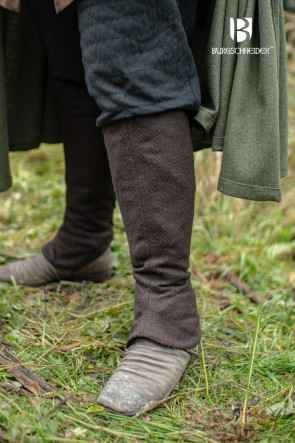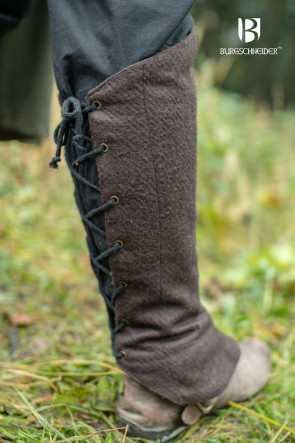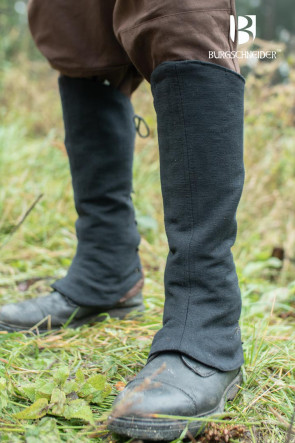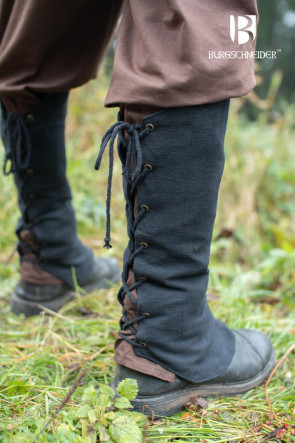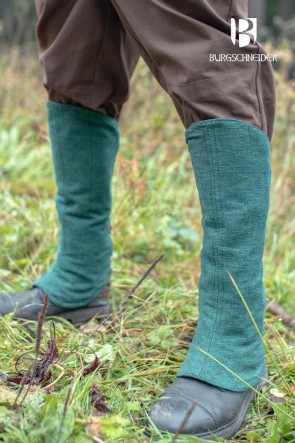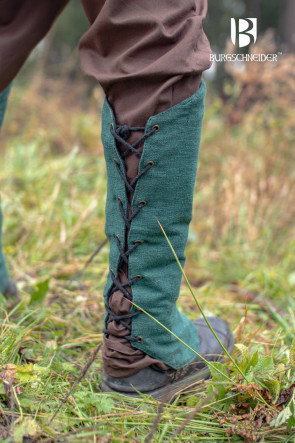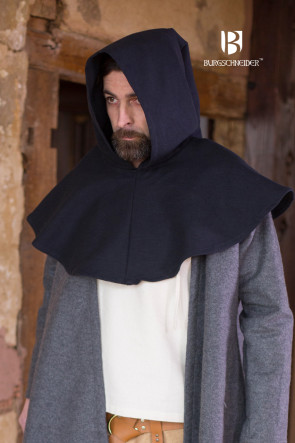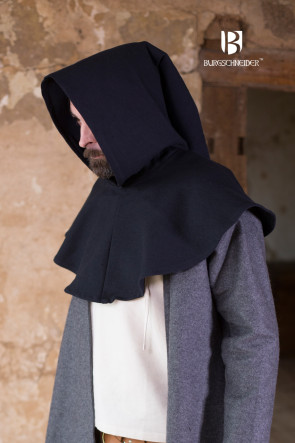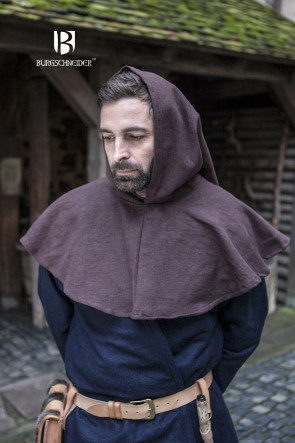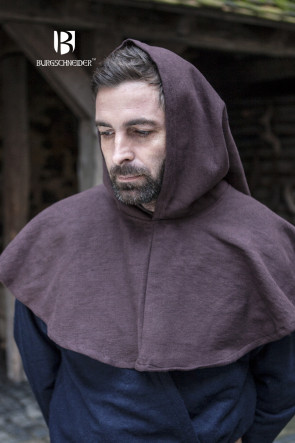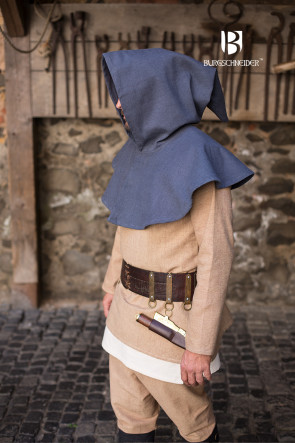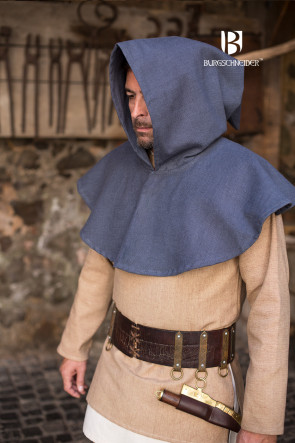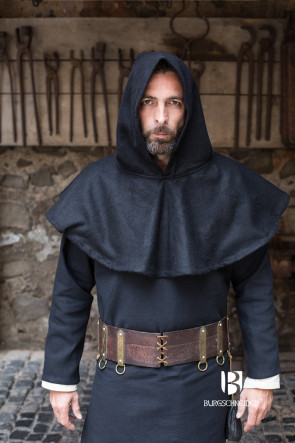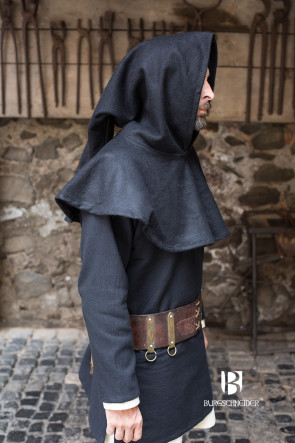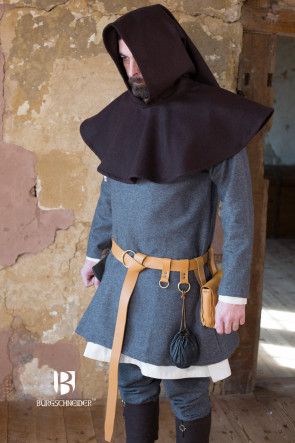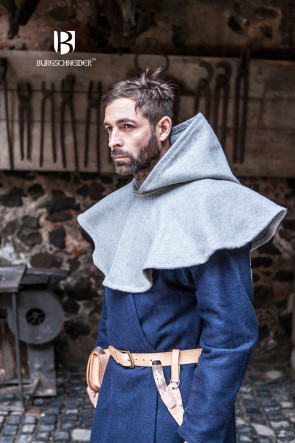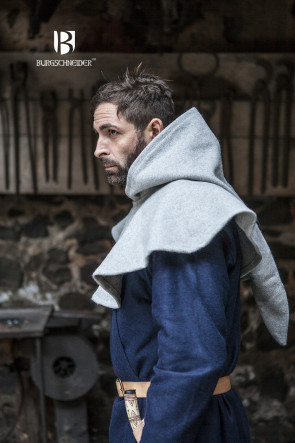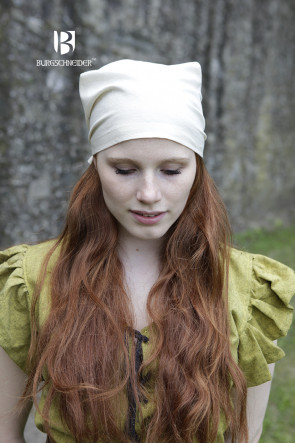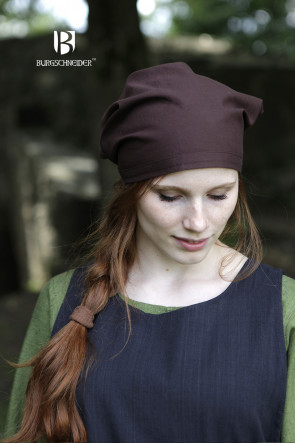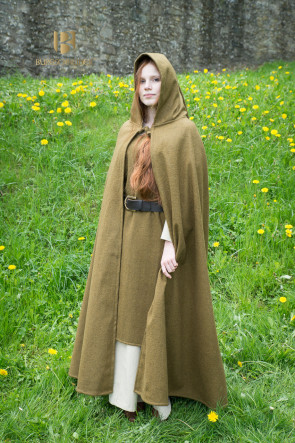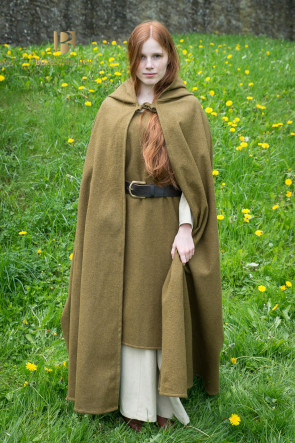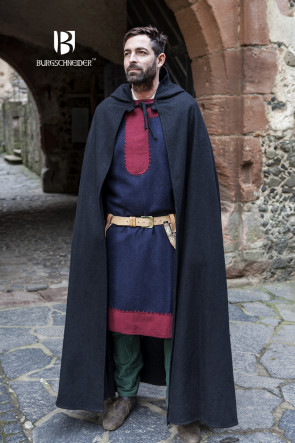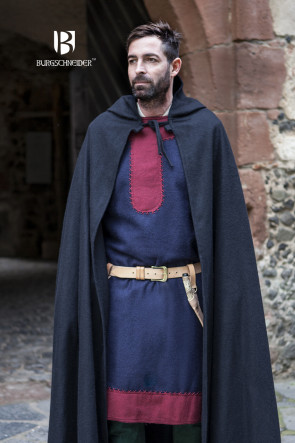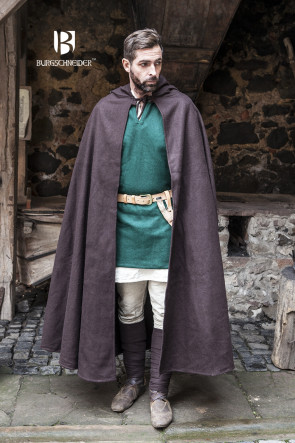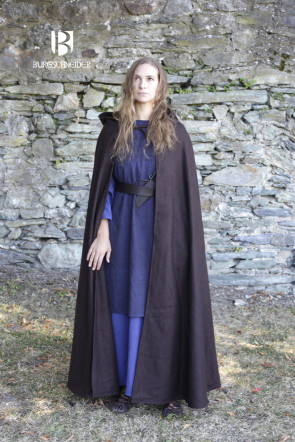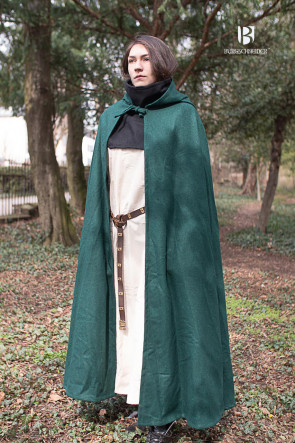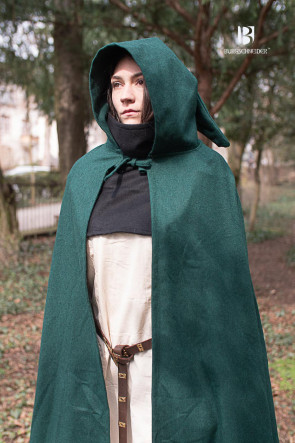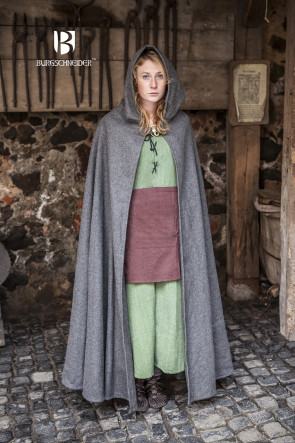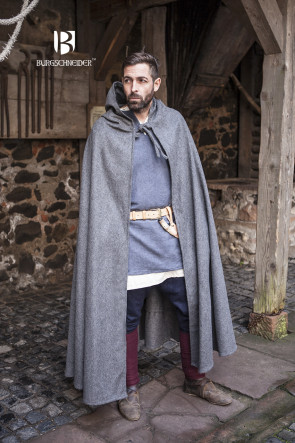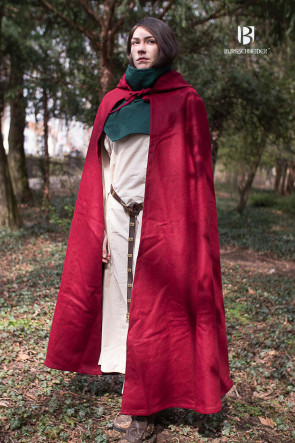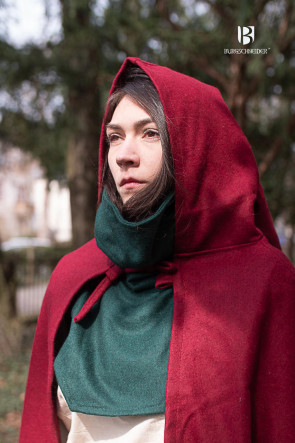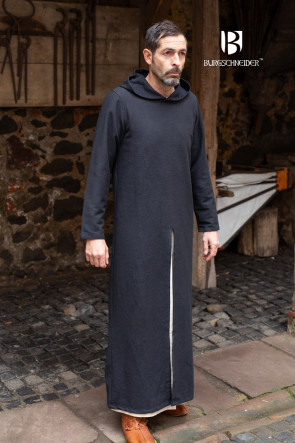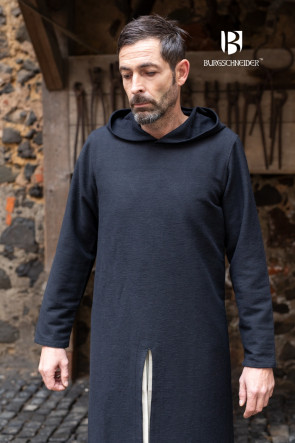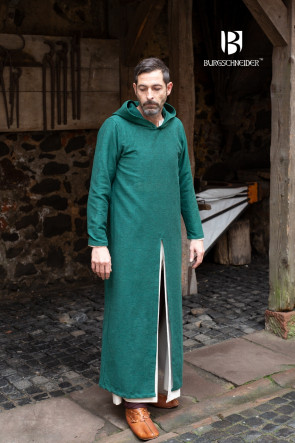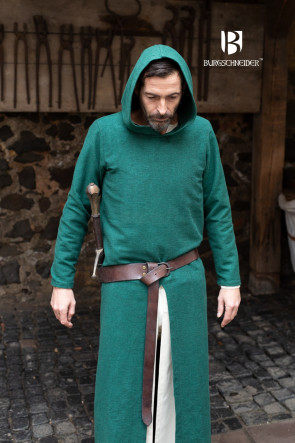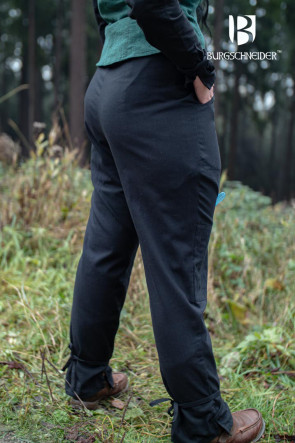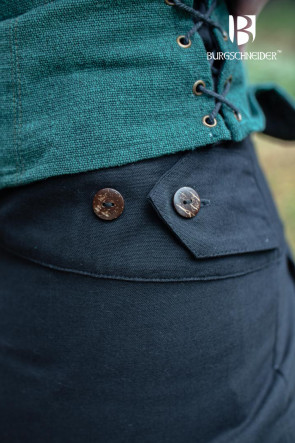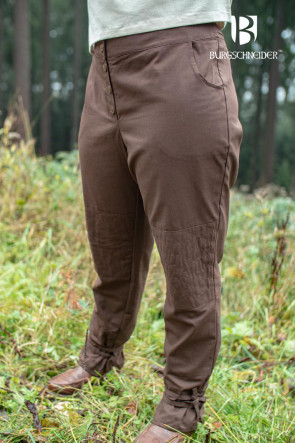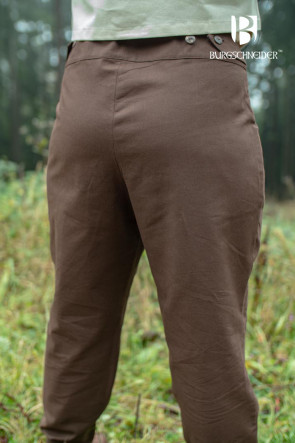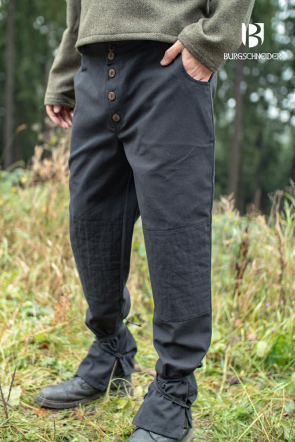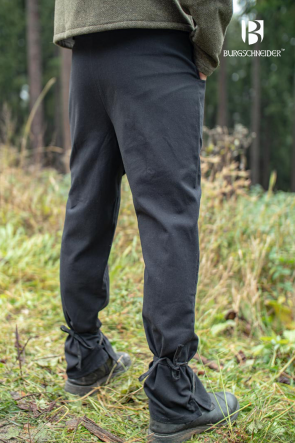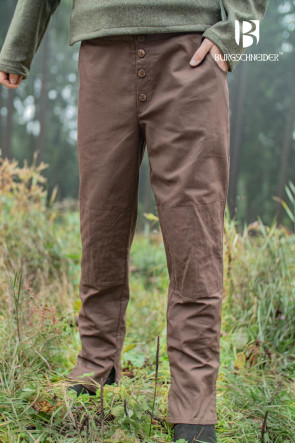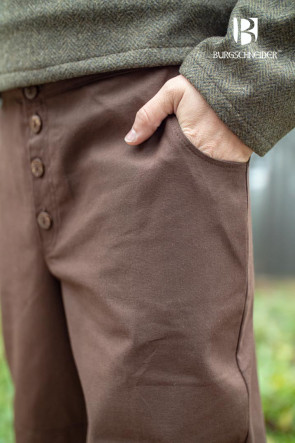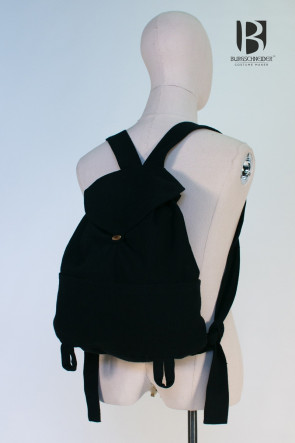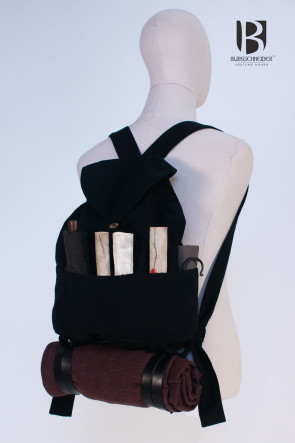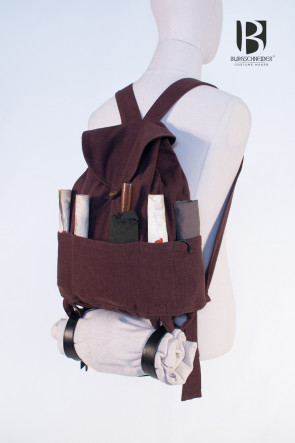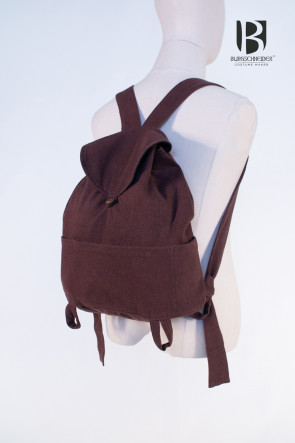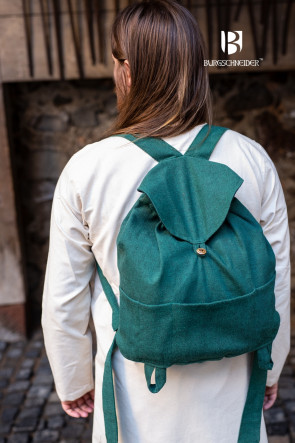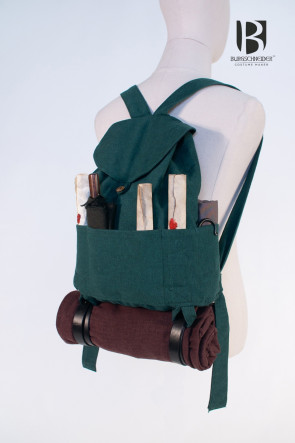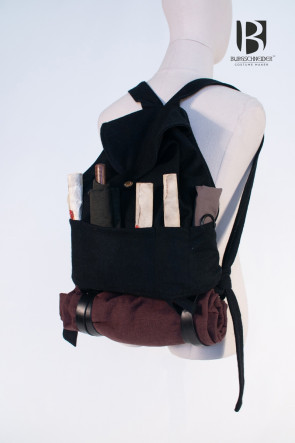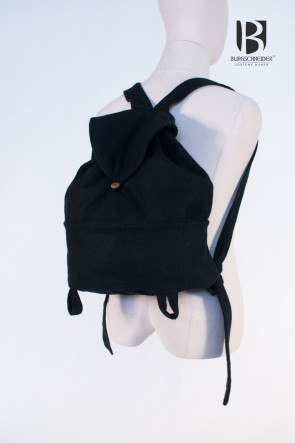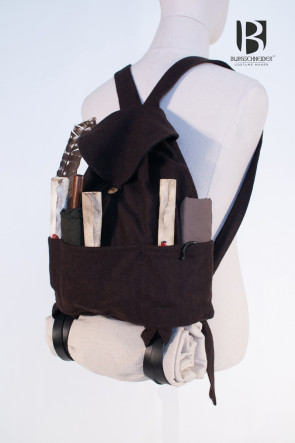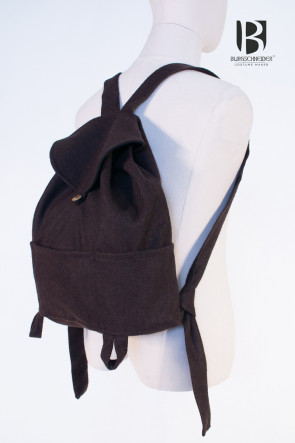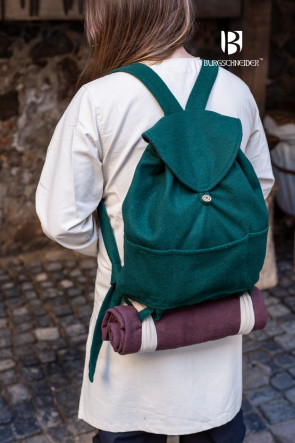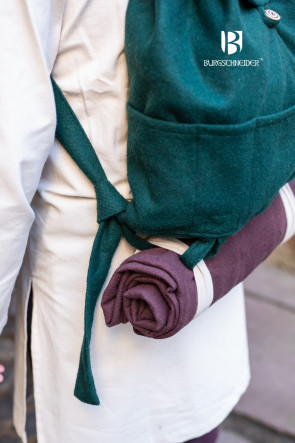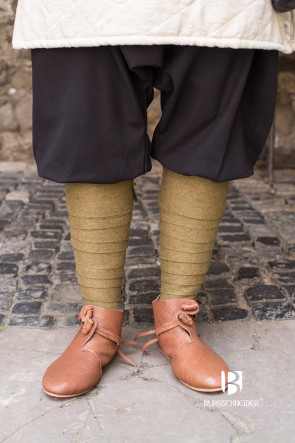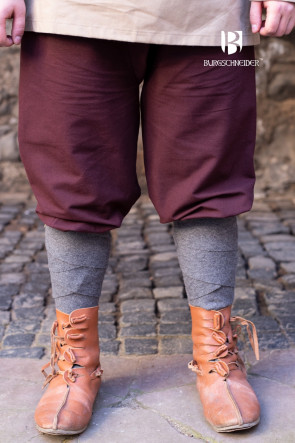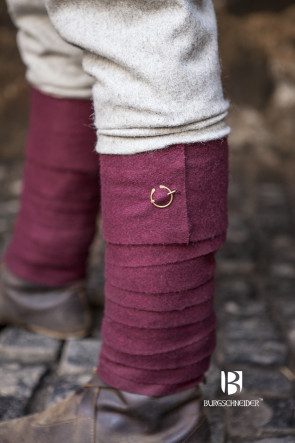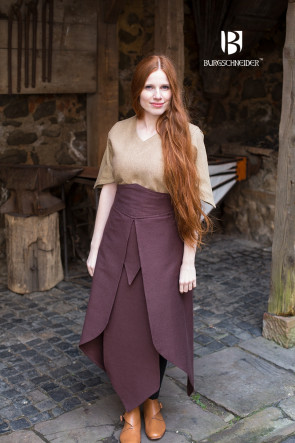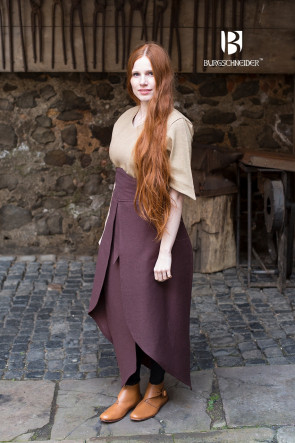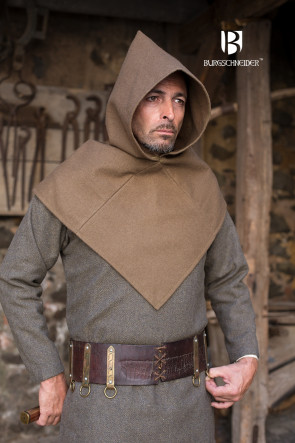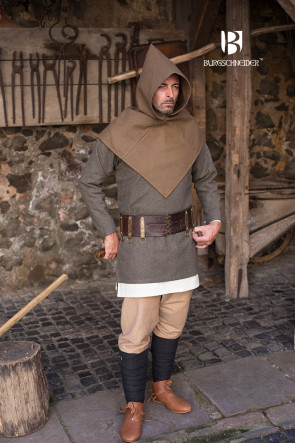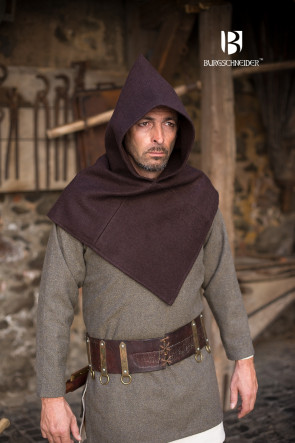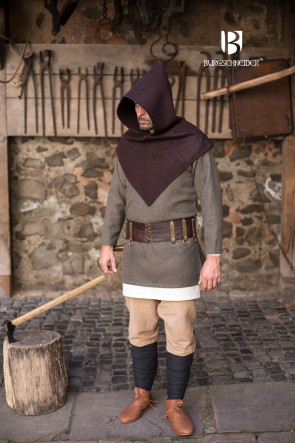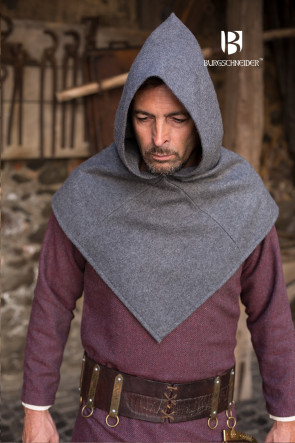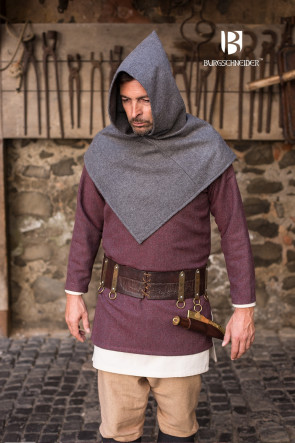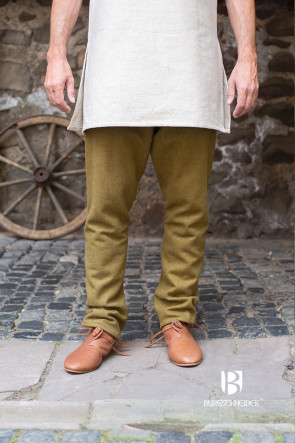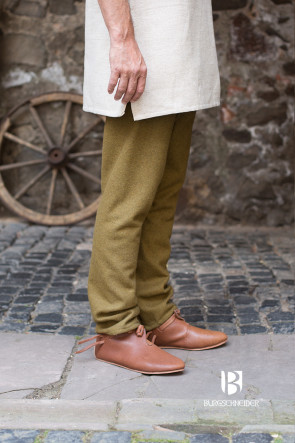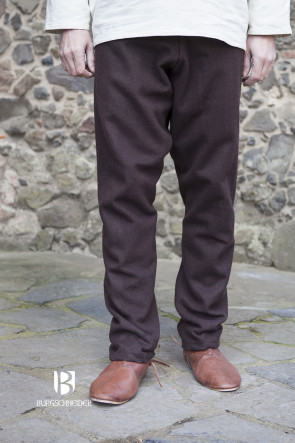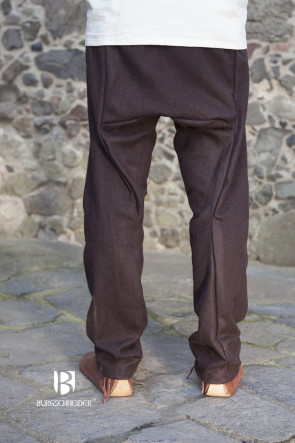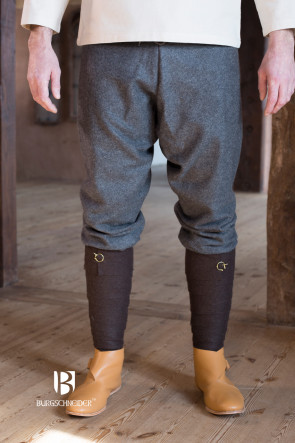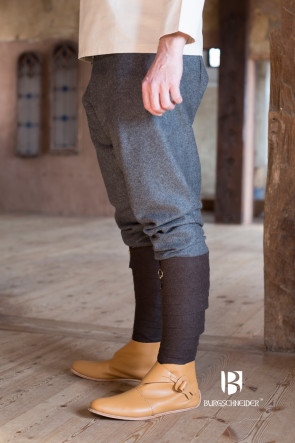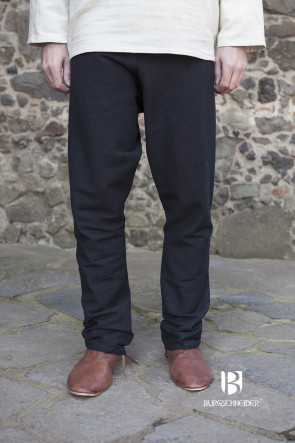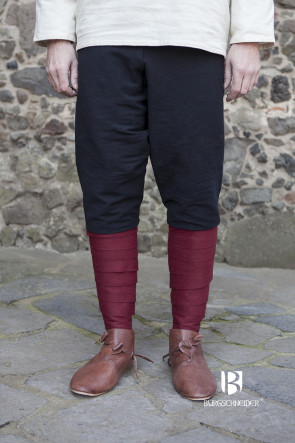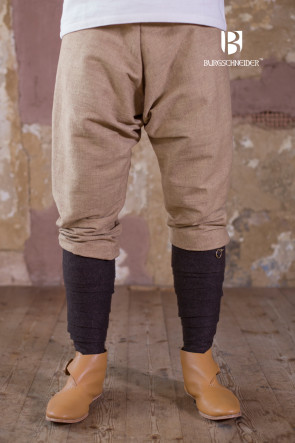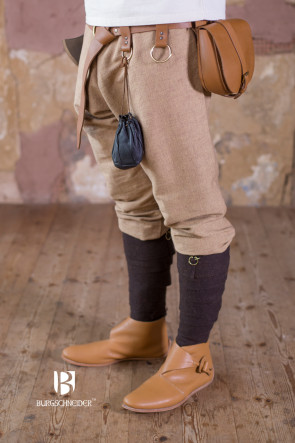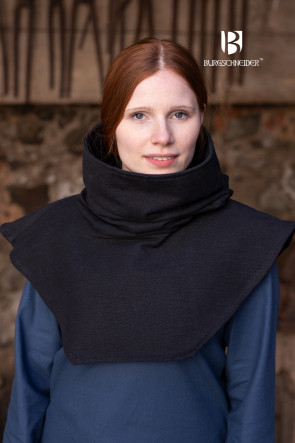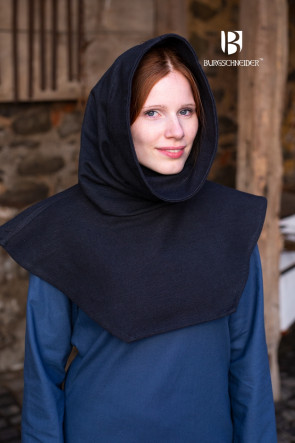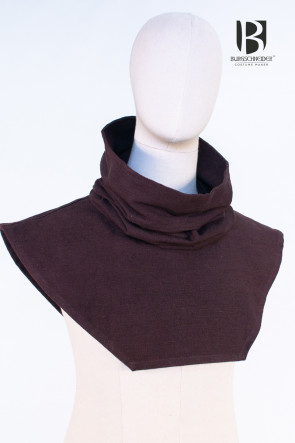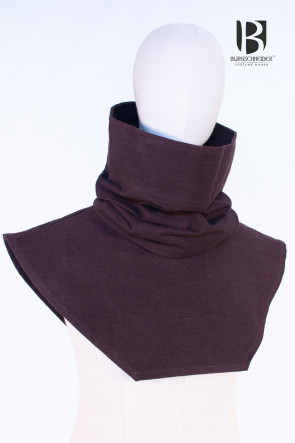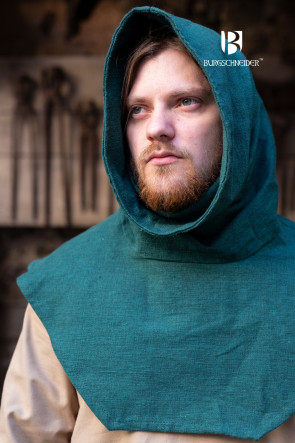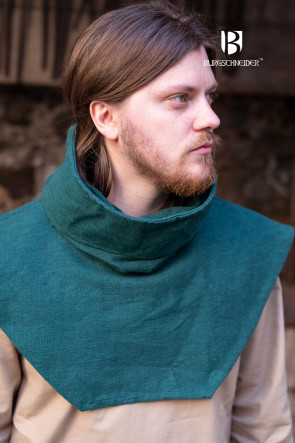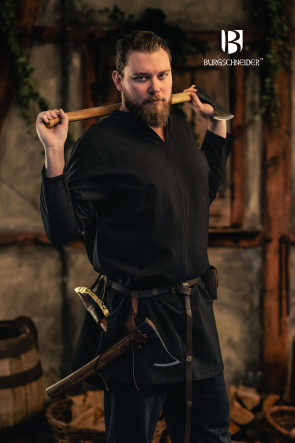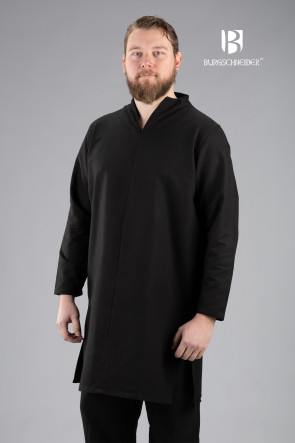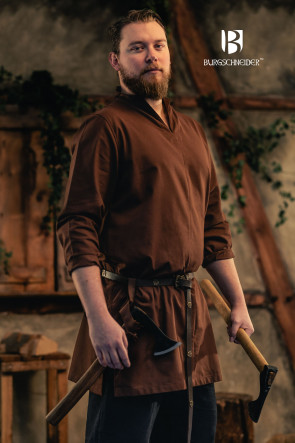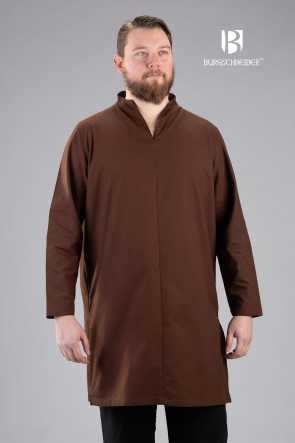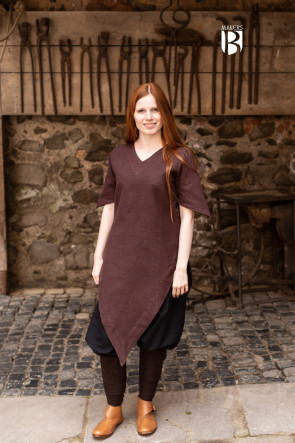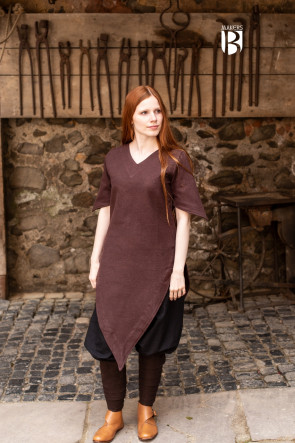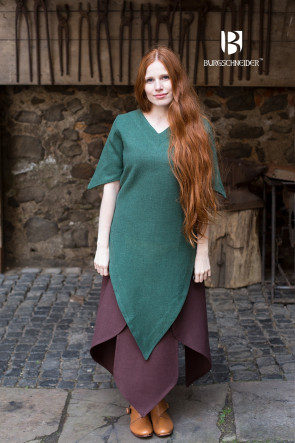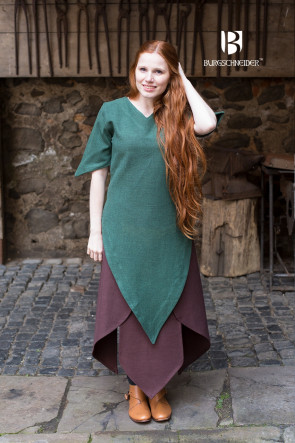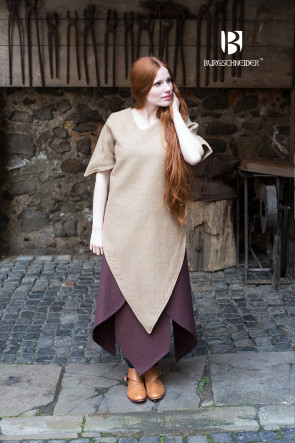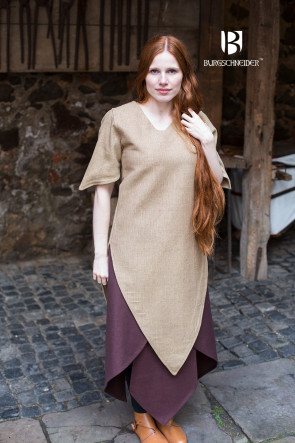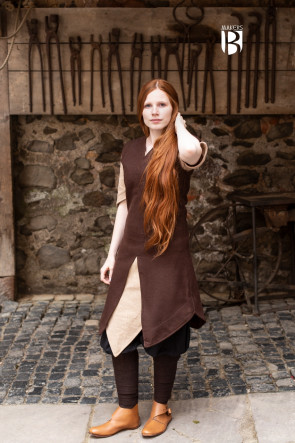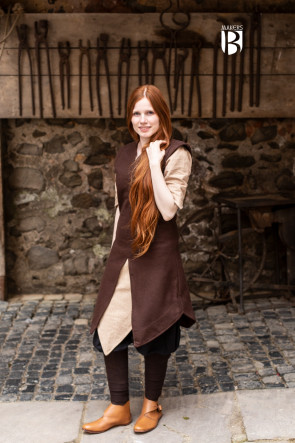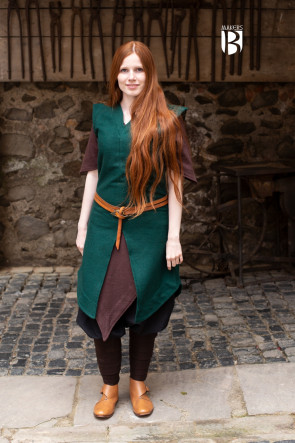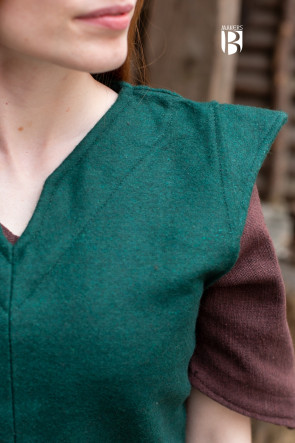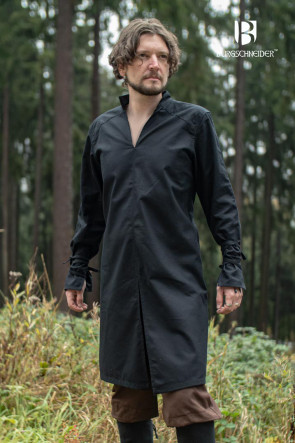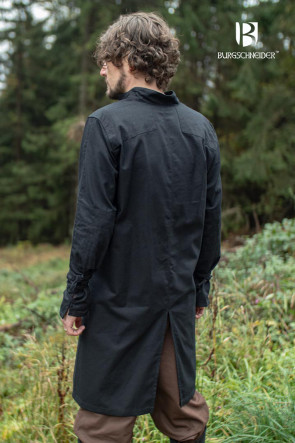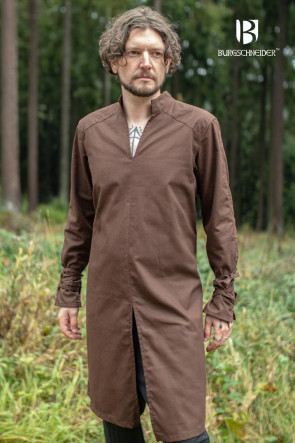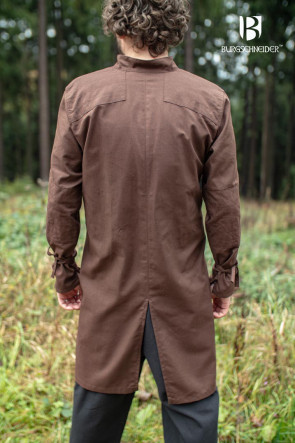Waldläuferkostüm
The term ‘ranger’ conflates various kinds of hunters, archers, strays, and other kinds of medieval survivalists. Usually, these characters are loners who have been cast out of society or have voluntarily chosen to live in seclusion among animals. But a ranger is capable of so much more than running through the woods, because as forest dwellers themselves, they are expert survivalists, tenacious runners, excellent climbers, and skilled fighters.
Even though the term ‘ranger’ is commonly associated with someone dwelling in the woods, it also describes fantasy survival experts roaming deserts, snowscapes, and steppes—and each of them has perfectly adapted to their surroundings. In order to survive in their respective environments, they require equipment matching its conditions—meaning sturdy, practical, and purpose-dedicated clothing.
The task of the ranger on an adventure
In adventuring parties, rangers usually thrive on their knowledge of animals, plants, minerals, hunting, meteorology, as well as of general survival techniques, such as building a shelter or purifying water. They usually serve as trackers, scouts, trappers, archers, or herbalists. Thanks to their independent way of life, they can assume a variety of tasks, especially when the group’s specialist is indisposed. While solitary rangers often lack the knowledge of societal etiquette and the intricacies of fine elocution, they can, however, communicate with animals.
Should a ranger decide to join an adventuring party, they usually do so for a good reason rather than for gold and glory—their territory is usually their home, after all, and its inhabitants are their friends. You cannot train or study to become a ranger; rather, their skills are honed in everyday life within nature. They often aspire to save the natural world from the ruthless exploitation wrought by other peoples and cultures.
What makes a compelling costume for a ranger?
A ranger’s clothes need to be sturdy, practical, and comfortable. Usually rangers own only one set of clothing; as a consequence, it will be quite worn out and patched up. To achieve greater plausibility, this wear and tear can be done on purpose—by using sandpaper, a steel brush, and dark shoe polish, or by adding patches to the elbows, knees or buttocks.
The clothing has to camouflage its wearers while protecting them from various weather conditions, and it shouldn’t be an encumbrance on long walks or while climbing. A good ranger costume should therefore follow the principles applicable to designing outdoor, military, or sports gear: clothing that is simple and functional, not necessarily pretty but rather practical. Numerous pockets provide storage space, reinforced knees and elbows protect from injuries after a fall, and a hooded coat obscures the human silhouette, making stealth easier. The colors of the clothing should be muted and somewhat washed-out or muddy, in order to allow rangers to blend into their surroundings. Rangers rarely wear black, though, because, compared to brown and gray, it is much more visible at night.
Rangers usually abstain from using metal armor or shiny jewelry, as polished metal reflects sunlight and can give away their position. Metal armor also tends to clang, which impairs stealth. Should a ranger choose to wear armor, it will be made from leather that is well oiled to prevent creaking.
Linen or cotton undergarments are easy to clean and wash, and wool or leather outer garments protect from wind and rain. In addition, wool keeps the wearer warm, making it additionally suitable for a cloak or coat, which can then be used as a ceiling for a makeshift shelter. A sturdy backpack holding survival tools—such as carving knives, rope, gloves, a warm blanket, and a water bottle—rounds out the ranger costume.
-
Bag Ehwaz - Black
$19.99 -
Bag Ehwaz - Green
$19.99 -
Bag Ehwaz - Sand
$19.99Out of stock
-
Birka Coat Aslaug - Wool Brown
$95.99 -
Cape Affra - Wool Brown
$85.99 -
Cape Affra - Wool Green
$85.99 -
Cloak Justus - Wool Olive Green
$119.99 -
Gaiter Seran - Black
$34.90 -
Gaiter Seran - Brown
$34.90 -
Gaiters Nares - Black
$29.90 -
Gaiters Nares - Green
$29.90 -
Gugel Capellus - Black
$23.99 -
Gugel Capellus - Brown
$23.99Out of stock
-
Gugel Capellus - Grey
$23.99 -
Gugel Cucullus - Wool Black
$35.99 -
Gugel Cucullus - Wool Brown
$35.99 -
Gugel Cucullus - Wool Grey
$35.99 -
Head Scarfs Set Marianne - Natural and Brown
$14.90 -
Hooded Cloak Hibernus - Wool Autumn Green
$139.90 -
Hooded Cloak Hibernus - Wool Black
$139.90 -
Hooded Cloak Hibernus - Wool Brown
$139.90 -
Hooded Cloak Hibernus - Wool Green
$139.90 -
Hooded Cloak Hibernus - Wool Grey
$139.90 -
Hooded Cloak Hibernus - Wool Red
$139.90 -
Hooded Tunic Renaud - Black
$79.99 -
Hooded Tunic Renaud - Green
$79.99 -
Pants Kerga - black
$59.99 -
Pants Kerga - brown
$59.99 -
Pants Kergon - black
$59.99 -
Pants Kergon - brown
$59.99 -
Rucksack Capsus - Black
$35.99 -
Rucksack Capsus - Brown
$35.99Out of stock
-
Rucksack Capsus - Green
$35.99 -
Rucksack Robin - Black
$45.99 -
Rucksack Robin - Brown
$45.99 -
Rucksack Robin - Green
$45.99 -
Rus Pants Kyivan - Black
$59.99 -
Rus Pants Kyivan - Brown
$59.99 -
Set Aki with Winingas and Brooches
$34.99 -
Skirt Tharya - Brown
$44.90 -
Skjoldehamn Wool Cowl Bjorn - Autumn Green
$35.99 -
Skjoldehamn Wool Cowl Bjorn - Brown
$35.99 -
Skjoldehamn Wool Cowl Bjorn - Grey
$35.99 -
Thorsberg Pants Fenris - Wool Autumn Green
$59.99 -
Thorsberg Pants Fenris - Wool Brown
$59.99 -
Thorsberg Pants Fenris - Wool Dark Grey
$59.99 -
Thorsberg Pants Ragnar - Black
$45.99 -
Thorsberg Pants Ragnar - Sand
$45.99 -
Tube Gugel Alex - Black
$23.99 -
Tube Gugel Alex - Brown
$23.99 -
Tube Gugel Alex - Green
$23.99 -
Tunic Ekwin - Black
$55.99 -
Tunic Ekwin - Brown
$55.99 -
Tunic Laylin - Brown
$45.99 -
Tunic Laylin - Green
$45.99 -
Tunic Laylin - Sand
$45.99 -
Tunic Meril - Wool Brown
$69.90 -
Tunic Meril - Wool Green
$69.90 -
Tunic Thereon - black
$59.99 -
Tunic Thereon - brown
$59.99







